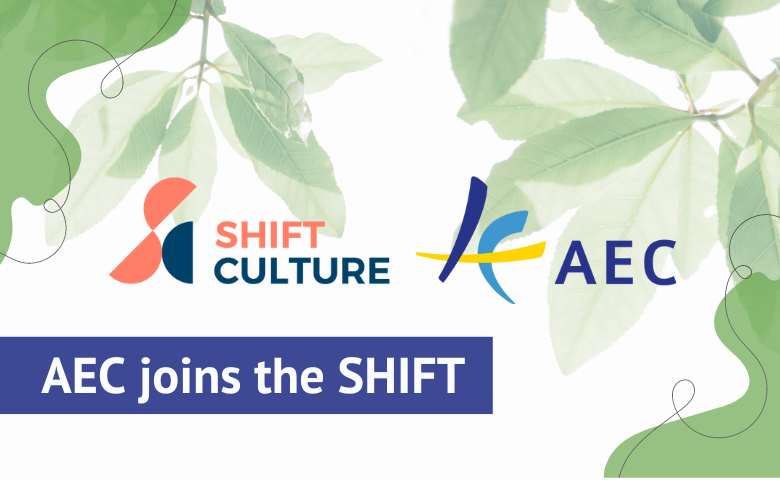The AEC recognises the impact of human activity on the climate crisis and is committed to reducing its ecological footprint, implementing sustainable practices and serving as a model of environmental responsibility for its members and other cultural networks. Thus, joining the SHIFT Eco-Guidelines of Networks was a logical step for AEC.
This three-stage audit, set for completion by the end of 2024, will, if successful, result in a certification that demonstrates the AEC’s commitment to addressing climate change. This certification will also showcase AEC’s dedication to sustainability efforts and will provide a scheme to improve, measure, monitor and evaluate its efforts towards sustainability.
Each network implements mandatory guidelines at the level of its organisation (step 1) and participates in peer audits with the other European / international networks as well as attends a combined development workshop in Brussels (step 2); finally, the Vector 42 uses the guidelines to audit each network (step 3), which assures the credibility and integrity of the certification process. The certification offers a framework to enhance, measure, monitor, and assess sustainability efforts.
The implemented guidelines were developed and designed specifically for network organisations, which tend to be small in size but large in the scope of their influence, with most of their environmental impact stemming from travel. The buddy and peer audit system has connected networks around climate action. The project offers a collaborative journey and joint learning experience for all networks involved.
More information will be available by the end of 2024.
SHIFT Eco-Guidelines for Networks
The SHIFT Eco-Guidelines for Networks recognise and address the ecological footprint associated with operating international cultural network and platform-organisations (hereafter referred to as network-organisations). The guidelines serve as a reference document for network-organisations that aim to minimise their footprint, optimise environmentally sustainable practices, and act as an example of good practice for their members and other networks. They are purposely made openly accessible in the hope they can inspire structural organisational change in the cultural sectors, in the broadest sense.






